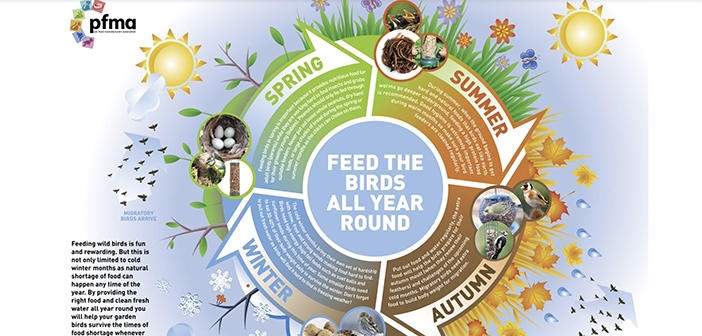The range of wild birds that come flocking to UK gardens is enormous and despite what some may think, the Pet Food Manufacturers’ Association (PFMA) highlights, that they do not all eat the same foods.
Each bird has different nutritional requirements and feeding styles based on elements such as: size, weather, season, habitats, and life-stage.
Nicole Paley, deputy chief executive of the PFMA, said: “Birds are also very selective feeders; they know what they want and will throw other seeds out of the way in order to find the food they desire. The type of food available is one of the main factors in how a bird chooses its habitat.”
How does a bird’s life-stage and the seasons affect their nutritional requirements?
At different times of the year, wild birds will go through a multitude of conditions which can be a strain on their energy.
Ms Paley said: “With Spring, there comes the beginning of the breeding and nesting season. Building nests, incubating eggs and feeding young chicks can all take their toll. During this period, it is important to put out foods that are high in fats and carbohydrates.
“As the weather begins to warm up in the Summer, there seems to be more natural food readily available to our wild birds. However, many insects such as worms begin to bury deeper into the ground, making it hard for many birds to find them. Foods that are high in proteins are best fed throughout the summer.”
In Autumn, Ms Paley said the birds’ have to face their next challenge – the Autumn Moult.
“This is the process of shedding and growing new feathers,” she said. “Foods that are high in energy are best fed during this time.
“Once the birds have got through the moult, the ground then begins to freeze over as the Winter sets in. A shortage of natural food including, insects and berries makes it difficult for our wild birds to get the nutritional requirements they need to survive. They require fat for energy and insulation against the cold, and they also need protein to keep their muscles in good working order.”


